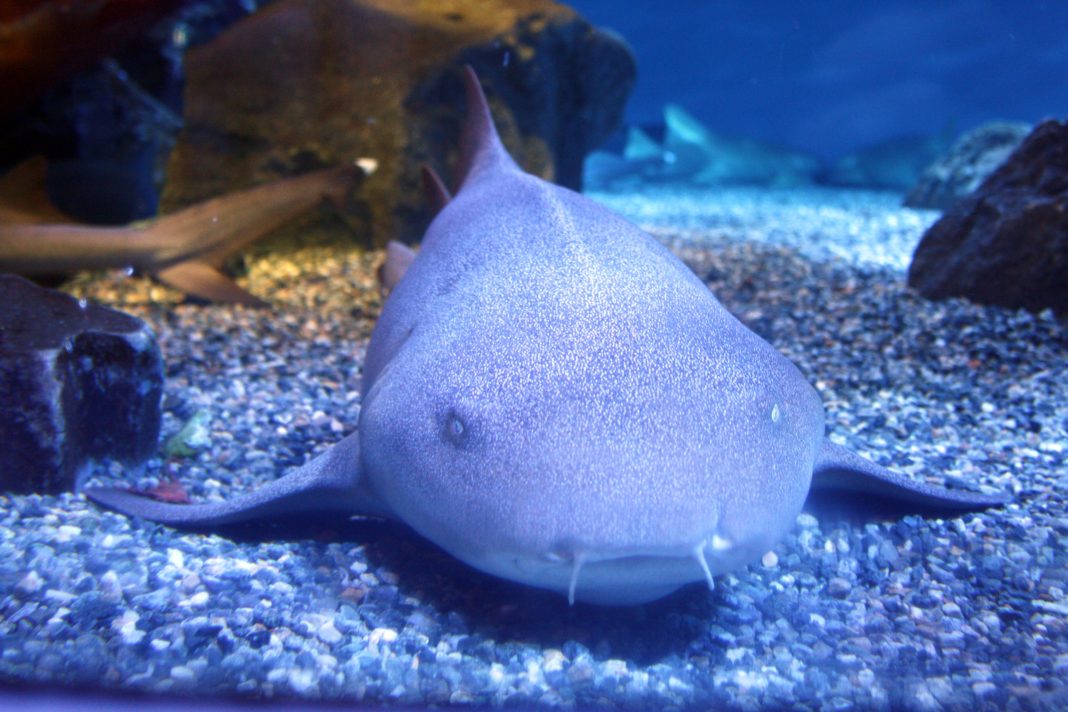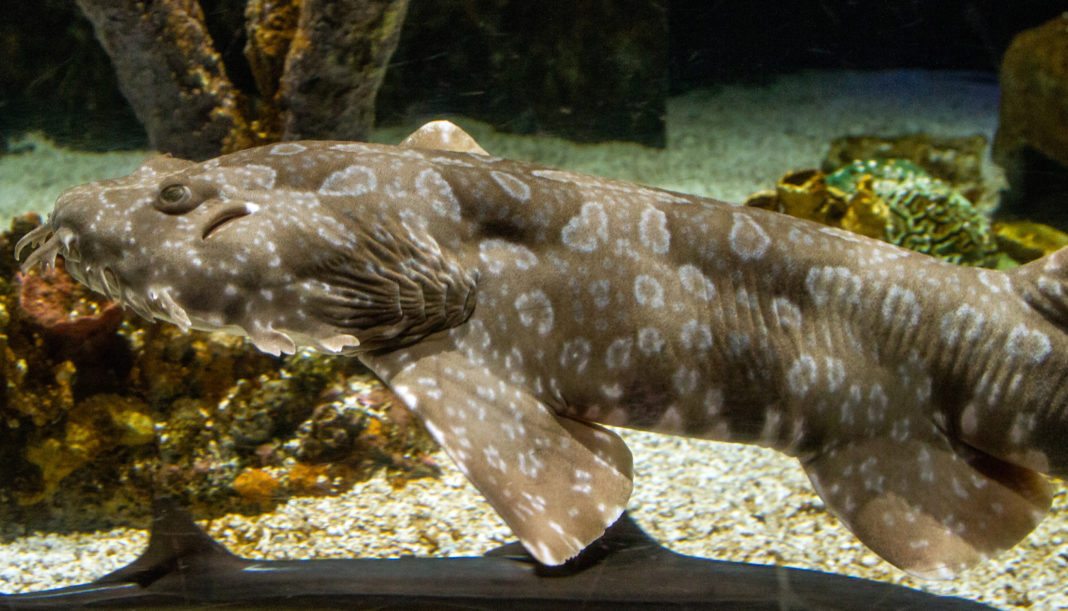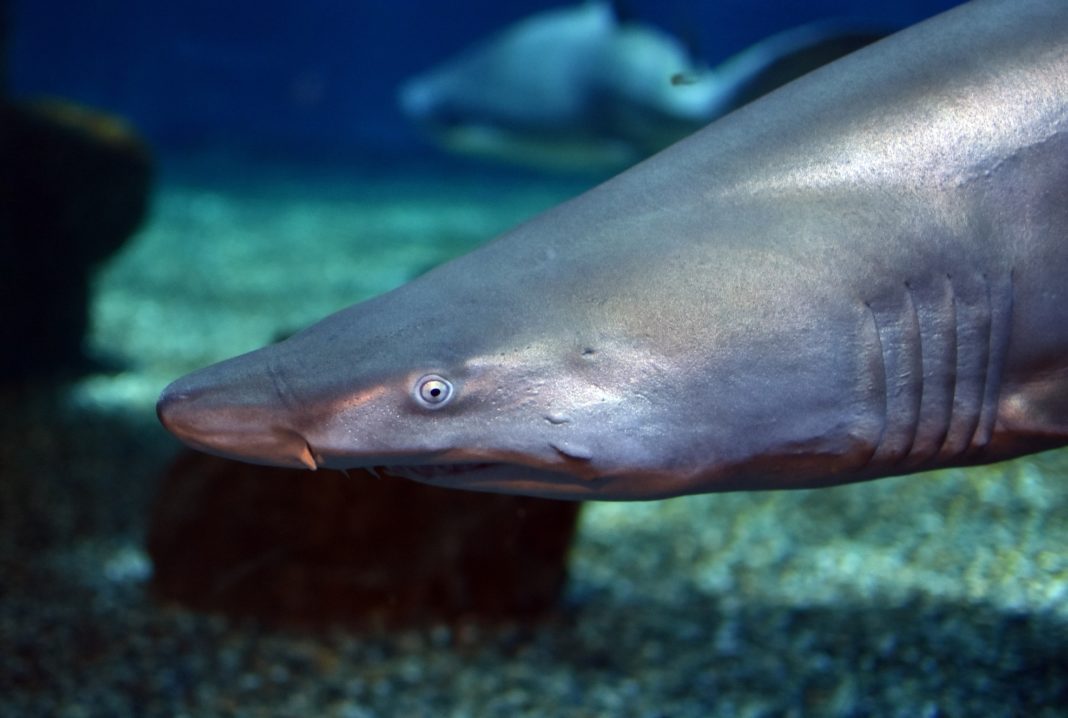Win Mystic Aquarium Tickets – Entry Deadline Friday 7/14/17

By Monique Park, Mystic Aquarium, Aquarist
Maybe it’s not such a great idea to go ocean swimming toward the end of July! Why? Well, July 23, 2017 is the beginning of Discovery Channel’s Shark Week, and our pointy finned friends may just be a little riled up.
This year The Feinstein Foundation has teamed up with Mystic Aquarium and Discovery Channel to bring Shark Week home to Southern New England. The three have come together to offer local folks a chance to screen Shark Week’s premier episode before anyone else has seen it and enjoy mingling with real sharks at Mystic Aquarium for free.
For the aquarists at Mystic Aquarium, every week is Shark Week! While Discovery Channel may have Sharkopedia, you’d be hard pressed to find better “Finbassadors” than us! At Mystic Aquarium, we have the privilege of caring for whitespotted bamboosharks (Chiloscyllium plagiosum), brownbanded bamboosharks (Chiloscyllium punctatum), sand tiger sharks (Carcharias taurus), nurse sharks (Ginglyostoma cirratum), chain dogfish (Scyliorhinus retifer), and a spotted wobbegong (Orectolobus maculatus).
Whether encountering guests in our Shark Touch exhibit or lurking in our Shark Lagoon, each of the sharks under our care are great ambassadors for their species. During your next visit to Mystic Aquarium, you can meet these fascinating sharks face to face and learn all you’d like to know from our friendly, knowledgeable staff. But, in honor of shark week, we thought we’d take this opportunity to provide you with some interesting facts about other sharks.

There are over 400 described species of shark, and there are still more to discover! Sharks are generally apex predators that are found in nearly every region, from the polar-dwelling sleeper sharks to the reef-dwelling whale sharks, and every habitat of the ocean, from the epipelagic (from 0-200m deep) thresher and mako sharks to the bathypelagic (700-1000m deep) cookie-cutter shark and even the abyssalpelagic (2000m or more deep) goblin shark. Every species is uniquely adapted to the area it lives, with distinct diets, behaviors and physical features that best suit their unique habitat.
Many shark species are known to migrate, swimming long distances, sometimes even circling the entire globe, to find new feeding or breeding grounds. Some species such as hammerheads and white-tip reef sharks travel in small schools, though most sharks travel alone like the elusive megamouth shark.

Shark feeding behavior varies greatly. The most well-known example is that of the lamniform sharks (lamna in Greek is “fish of prey”), that give all sharks the reputation for being aggressive hunters. These sharks (white, mako, salmon, and porbeagle) opportunistically feed on large prey such as seals (“It’s STILL a bad week to be a seal), whales, squid, tuna and other schooling fishes. Their long migrations, fast swimming speed, and large size means that when they can feed, they usually eat A LOT. On the other end of the spectrum, some sharks feed on small plankton like krill. Such is the diet of the large, peaceful basking sharks and whale sharks. They still manage to consume A LOT though. Sharks that have lower energy demands are less voracious. Horn sharks that live in temperate reefs and the edges of kelp forests eat urchins and snails and squid and actually take the time to chew or grind their food before swallowing. The deep-water cookie-cutter shark cuts perfectly circular chunks out of large prey items, but since this shark is only a little more than a foot long, the wounds it leaves are not necessarily harmful.
In his continuing search for new and exciting educational opportunities, Alan Shawn Feinstein has now made it possible for area folks to become shark experts. The Feinstein Foundation is offering the opportunity for people to win tickets to see a screening of the premier episode of “Shark Week” at Mystic Aquarium before it has aired on the Discovery Channel.
Alan Shawn Feinstein’s commitment to schools and education in the State of Rhode Island and South Eastern Massachusetts is legendary. He has dedicated millions of dollars to its schools, and consistently promotes the importance of community service in education and the values of caring, compassion and brotherhood. Students are still enjoying personal visits from Alan at their elementary schools and viewers can still hear his message through his RI PBS show which can also be seen on Netflix! Alan Shawn Feinstein and the Feinstein Foundation are dedicated to empowering youngsters to reach out to help others and teach them the importance of compassion and caring for those in need. There are currently over 250,000 Feinstein Jr. Scholars pledging to do good deeds every day. “






















